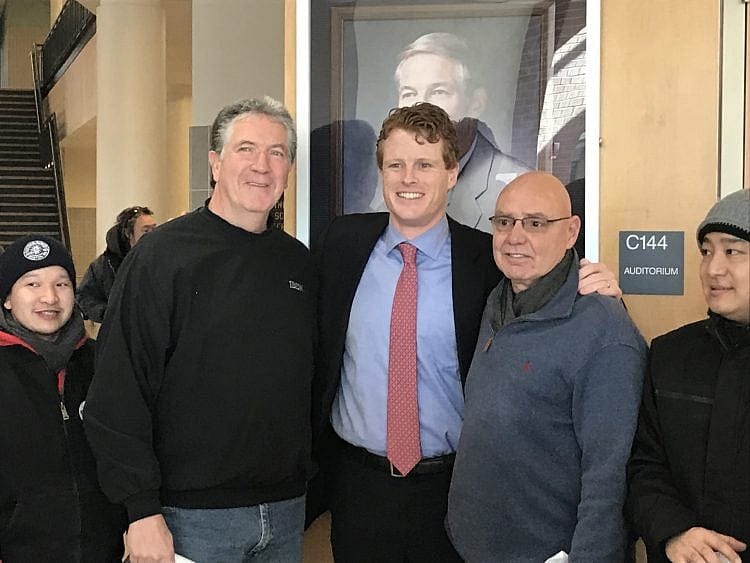Joe Kennedy III Accepted $2,500 From A Private Prison Corporate PAC In 2012

In his quest to be elected to the U.S. Senate, Democratic U.S. Representative Joseph P. Kennedy III is not taking a dime of corporate political action committee money. Previously, that was not the case.
Kennedy (D-Newton), who represents Massachusetts's Fourth Congressional District, has received a significant amount of corporate PAC donations over the years. That includes a $2,500 contribution from The GEO Group Inc. on June 1, 2012, according to Federal Election Commission campaign filings. That donation came during Kennedy's first campaign for the U.S. House of Representatives.

